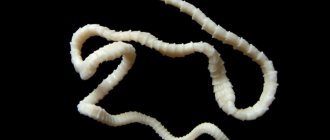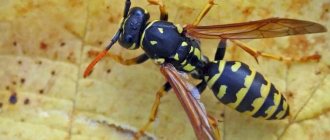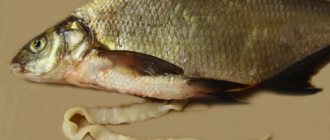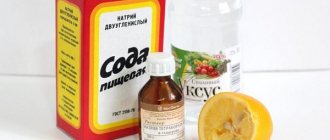Ways of infecting a cat with worms
Unfortunately, heartworms in pregnant cats are very common. They affect not only cats that move freely on the street, but also those who do not leave the house.
There are several main ways cats become infected with worms:
- Food. Worm eggs can enter the body of a pregnant pet along with raw or undercooked meat or fish, as well as poorly washed fruits and vegetables.
- Water. The source of worm infection can be water from springs or other bodies of water. In rare cases, parasites can be contracted even through tap water.
- Human. Of course, all cat owners go outside and can bring worm eggs on their clothes or the soles of their shoes.
- Other animals. Infection can occur during mating, as well as if an already pregnant cat comes into contact with other animals that have free access to the street.
- Soil from pots with indoor flowers. Most cats love to dig in flower pots. Even soil that was purchased in a store can become a source of infection with internal parasites.
- Sand from a tray. Some owners, in order to save money, use ordinary street sand as a filler for the cat litter box. Very often, because of this filler, cats become infected with worms.
- Insects. Absolutely all domestic representatives of the cat family have a weakness for midges, flies and other insects and will not miss the opportunity to hunt for them. Sometimes such prey can be a source of helminth infection. In addition, fleas are considered the main carriers of worms, so it is very important to regularly carry out procedures to rid your pets of these insects.
What to do if a pregnant cat has worms
One of the problems that owners face is worms in a pregnant cat. The symptoms of such a disease cannot always be determined correctly, and it is not always clear how to remove helminths and what to do if a pet becomes infected with worms in the first half of pregnancy.
Helminthiasis is a disease that can be diagnosed in a pet at any age, including during pregnancy, and a kitten can be infected at birth. This is quite dangerous, because this type of disease is not characterized by obvious signs, and a lot of time can pass from infection to the manifestation of the disease.
Treatment of worms in a pregnant cat requires special attention and mandatory consultation with a doctor, as it can affect the development of the fetus and lead to termination of pregnancy.
However, it is also impossible not to treat the animal, because worms can affect the development of the fetus, and kittens may be born already infected. When choosing a drug, you should definitely consult a veterinary pharmacy to find out whether the drug can be used for a pregnant cat or not. As a rule, such information is indicated in the instructions for use, so you will not have to select the drug for a long time.
shutterstock
What to do
If you observe symptoms such as:
- lethargy;
- lack of appetite;
- increased aggression and irritability;
- atypical behavior.
Then it is worth contacting a veterinarian and diagnosing a disease such as helminthiasis. Removing worms from a pregnant cat is quite simple. The main thing is not to carry out this procedure in the first half of pregnancy, as this can directly affect the health and development of kittens.
It is also not recommended to treat the animal for worms if more than 6 weeks have passed since mating, as this can cause premature birth and fetal death.
After she has lambed, when the permissible period has reached, it is recommended to treat not only the pregnant cat, but also newborn kittens in order to prevent the spread of worms throughout the body.
It is recommended to poison a pregnant cat with worms with extreme caution and with the use of drugs that will be selected by a veterinarian, based on the types of worms that were diagnosed in the pregnant cat, and taking into account the duration of pregnancy, the general condition of the pet, the degree of damage to the body and the state of the immune system.
Types of drugs
There are several types of drugs that are used to treat pregnant females for worms. They are divided into:
- preventive, which have a fairly mild effect, but have a wide spectrum of action and, basically, prevent the spread of eggs throughout the body and their hatching;
- light preparations for safe deworming, which have a sufficiently mild effect, they can be given not only to cats, but also to kittens after birth;
- drugs that have a complex effect, which have a fairly strong effect, but do not in any way affect the development of the fetus and the general condition of the pregnant cat.
shutterstock
Methods of infection
Quite often, a cat becomes infected already during pregnancy, and even those pets who receive maximum care are not immune from this. Infection can occur in several ways:
- by consuming raw or undercooked fish or meat;
- unfiltered water may contain eggs and larvae of various worms;
- contact with an infected animal can also lead to the ingestion of worms;
- if there are several cats in the house, prevention and treatment must be carried out simultaneously, otherwise the animals can become infected from each other;
- a cat can become infected from a person if he has been in contact with stray animals;
- If a pregnant cat walks outside, she can bring worms on her fur or on her paws if hygiene is insufficient.
In order to prevent infection, it is necessary to adhere to several rules:
- a pregnant cat needs to be provided with improved care, including timely bathing;
- nutrition should be balanced and not include raw foods, as well as meat products;
- It is recommended not to let the cat go outside;
- completely eliminate contact with stray animals.
Signs of helminthiasis
Signs of infection of a pregnant pet with helminths are not easy to notice. Often, owners mistake the symptoms of helminthic infestation for vitamin deficiency, allergies, or other phenomena that occur during pregnancy.
If you suspect helminthiasis in a pregnant pet, it is better to start treatment after consulting a doctor, because some drugs cause premature birth or even death of kittens.
Typically, veterinarians recommend ridding your pet of parasites during pregnancy only in cases where the worms threaten the health of the expectant mother and her offspring. Symptoms of advanced helminthic infestation:
- perverted appetite or its complete absence;
- excessive salivation;
- frequent constipation or diarrhea;
- weight loss;
- significant deterioration in the condition of the coat;
- the presence of worms in feces;
- restless sleep;
- weakness and fatigue;
- cyanosis or pallor of mucous membranes;
- nausea;
- vomit.
Symptoms of worms
With a small number of worms in the animal’s body, symptoms of helminthiasis may be absent.
If there are a large number of worms, then this condition is accompanied by the following symptoms:
- loss of appetite;
- changes in the color and concentration of feces;
- vomit;
- defecation disorder;
- the occurrence of constipation or diarrhea;
- grinding teeth in sleep;
- breathing problems;
- weight loss;
- eye problems;
- sleep disturbance;
- dullness and hair loss;
- the presence of mucus and blood in feces, traces of parasites;
- lethargy of the pet.
With helminthiasis, the animal refuses to eat and loses interest in its favorite activities.
Worms in a cat's body weaken the immune system, making the animal susceptible to infections and colds.
These symptoms are considered dangerous and require immediate treatment. In addition, intoxication is possible, which provokes the death of kittens in the womb. An animal can die from a large number of parasites in its body.
What is the danger of having parasites in the body?
Worms cause significant harm to the weakened body of a pregnant cat. They injure the intestinal walls, leading to blood loss, which increases the risk of infection with various viruses. Internal parasites also cause hypovitaminosis, anemia and exhaustion in pregnant cats.
The waste products of worms lead to intoxication of the body and disruption of the functioning of almost all vital organs.
For unborn kittens, they are dangerous due to the following consequences:
- Intrauterine infection with nematodes (roundworms). This type of internal parasite is considered one of the most common. Their larvae are able to penetrate the placenta and infect babies in the womb. With this infection, kittens are born very small. Subsequently, they are likely to be stunted and may even die within a month.
Important! Such worms pose a threat to the life of a pregnant cat only if their number has reached a critical level.
- Infection with helminths through mother's milk or saliva. Most often, nematodes penetrate the mammary glands and saliva of a pregnant cat. After birth, babies lick worms from their mother's nipples. In addition, a cat can infect her kittens when she licks them.
This type of helminthic infestation usually does not pose a threat to the life of kittens, but the lag in growth and development from their healthy peers will be significant.
Is it possible to give a pregnant cat anthelmintics?
Pregnancy is one of the main contraindications for the use of most anti-worm medications. That is why, when they discover signs of helminthic infestation in their pregnant pet, owners find themselves in confusion: they do not know whether it is possible to deworm a pregnant cat.
In this case, you should not try to rid your pet of worms on your own. After all, only a doctor can choose a treatment that will not harm either the cat itself or its babies.
After examining the cat and assessing its condition and gestational age, the veterinarian will prescribe the following tests:
- biochemical and clinical blood test;
- examination of urine and feces.
After identifying the type of worms, the doctor may postpone deworming measures until the kittens are born. If, according to the results of the research, the cat is infected with worms that can penetrate through the placenta to the embryos, treatment cannot be delayed.
Typically, deworming of pregnant individuals is carried out after the pregnancy reaches 6 weeks. Getting rid of worms at an earlier stage is very dangerous.
During this period, kittens develop their main organs and systems, and exposure to anthelmintic drugs can disrupt this process and lead to the development of various pathologies. In addition, in some cases, the use of anthelmintics can even lead to miscarriage.
When deworming a pregnant cat is a necessity
Pregnant cats should be treated for worms if the presence of parasites prevents the cat from living and raising future offspring. The following dangerous signs of infection are identified:
- no appetite;
- noticeable deterioration in the animal’s condition;
- the presence of helminths can be traced in the feces.
If your pet looks cheerful and healthy and eats well, then it is better to hold off on taking anthelmintics. Taking the drugs can cause miscarriage, and if kittens are born, they may have congenital deformities.
But even though antiparasitic drugs are dangerous, if the animal has a lot of helminths, you shouldn’t think about whether it’s possible to deworm a pregnant cat. For a cat, and especially for kittens, such a manifestation of the disease is unacceptable.
Although the last third of pregnancy is a time during which even a very infected cat should not be treated. During this period, the poison from the medicine and dead parasites will have the most detrimental effect on the fetus.
As already mentioned, anything can happen, and an animal can get sick while pregnant. But these are rare cases, and if, for preventive purposes, periodic deworming and deworming of the cat before mating are carried out, then this problem will most likely be avoided.
Important tip! If you have a purebred cat and are looking for a suitable cat to breed with, be sure to make sure that the partner you choose is also parasite-free.
Medicines for worms
In modern veterinary medicine, there are many drugs for removing worms, which are available in a variety of forms. Most Popular:
- Prazitel.
- Dirofen.
- Vacation.
- Milbemax.
- Drontal.
- Polyverkan.
- Helmimax.
However, not all of these medications are safe to give to pregnant cats. That is why many owners simply do not know what to do if a pregnant cat has worms.
Prazitel, Kanikquantel and Polyvercan are considered the most dangerous for the embryo. Their use can lead to the death of offspring, as well as to various pathologies in the development of children.
Drontal, Milbemax and Dirofen in tablet form cannot be given to cats in the first half of pregnancy, but are allowed in the second. Gelmimax can be given to a pregnant pet no later than 3 weeks before giving birth.
Before using drugs in the form of tablets or suspensions, you must weigh the cat to determine the correct dosage. An overdose can lead to negative consequences:
- weakness;
- salivation;
- vomit;
- diarrhea;
- presence of blood in feces;
- development of various pathologies in unborn kittens;
- miscarriages.
In addition to suspensions and tablets, a pregnant cat can also be dewormed using drops on the withers. Such drugs have a wider spectrum of action and can destroy both the helminths themselves and their eggs and larvae.
Drops should be applied only to places where the cat cannot reach, and in strict accordance with the dosage indicated in the instructions. Do not use drops if there are scratches or wounds on your pet’s body.
Profender drops are considered the most suitable for killing helminths in pregnant cats.
Deworming of nursing cats
If you find worms in a nursing cat, you should not rush to rid your pet of them. First of all, you need to show your cat to a veterinarian. Doctors usually do not recommend worming those who have recently given birth: at least a month should pass from the moment of birth, and preferably 6 weeks.
After examining the cat and kittens, the veterinarian will suggest action according to one of the scenarios.
Immediate deworming
This option is usually chosen if the kittens are stunted in growth and development, and their mother has symptoms of intoxication or other diseases that were caused by the presence of worms in the body.
If the owners can feed the babies on their own, then any suspensions and tablets for deworming can be used to deworm the cat. In addition to transferring to artificial feeding, kittens need to be isolated from their mother for 24–72 hours until the active substances of the anthelmintic drug are completely eliminated from the body.
If the owners do not have the opportunity to feed the kittens without the participation of the mother cat, it is better to use folk remedies for deworming:
- garlic;
- pumpkin seeds;
- papaya;
- parsley decoction.
Important! When expelling helminths using traditional methods, it is recommended to give the cat activated charcoal or Enterosgel daily. This will help reduce the negative consequences of intoxication of the body.
In addition, veterinarians advise using drops on the withers to deworm nursing pets. Stronghold, Frontline, and Advantage are considered the safest.
These drugs have a long-term effect (about a month), and the effect of their use occurs after 12 hours. In addition, they are water-based, so they do not leave marks on the wool and are absorbed very quickly.
Folk remedies
Few owners of four-legged pets know how to poison worms using unconventional methods, but their correct use is safe, non-toxic and harmless to the animal and its offspring. Among the most common folk methods of fighting worms are:
- Pumpkin seeds. Grind 5 g of the raw product and then add it to the animal’s feed. The procedure must be repeated within a week.
- Onion. The vegetable needs to be cut into 4 parts and pour 1 tbsp. warm water. The infusion should be given to the cat on an empty stomach for 7 days.
- Wormwood tincture. You need to give your cat alcohol tincture 2 times a day. She should be given at least 10 drops at a time. Feeding is possible only an hour after the procedure.
- Tansy flowers. 5 g of the plant should be poured into 200 ml of boiling water. The resulting mixture is infused for 1 hour. The pet must be fed with the strained ready-made product 2-3 times a day from a syringe for 1 week.










